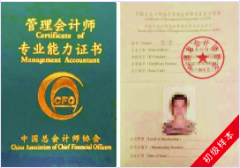為什么高管人員仍然能得到獎金
One easy and obvious way for companies to save money is to cut executive compensation, but why doesn’t it happen?
I’ll look to one of my classroom experiences to answer this one. On my first day of teaching Principles of Corporate Finance, I had my students participate in a role play exercise about a major airline in crisis.
I broke the students up into six groups, each representing a stakeholder in a major airline company: pilots, flight attendants, mechanics, executives, customers and stockholders. There are more stakeholders, but I wanted to keep it pretty simple.
Each group had to explain (through one representative) their position on options to increase profitability. All of the options came down to raising revenues or cutting costs, but I provided them with options such as raising airfares and fees for travellers, cutting salary and benefits for pilots, flight attendants and mechanics, cutting compensation for everyone, cutting dividends, and finally cutting the multi-million dollar bonuses collected by executives.
My findings: After four sections, the groups were unable to agree unanimously on any changes. The change with the most support was to cut executive compensation.
The argument from all of the workers outside of the executive suite was pretty consistent, including ”when times get rough we get punished and they keep on getting their millions…they don’t know what it is like out here doing the real work…what do they get so much money for anyway?”
My answers: true, probably true and I have no clue.
Executive talent is valuable. Companies need good leaders and a good leader can go a long way, but in terms of compensation where do we draw the line?
In each of my classes, the groups representing the executives said the same thing. In a nutshell, if we’re losing a billion dollars a year, taking away a million dollar bonus from me won’t help as much as cutting the wages and benefits of all of you.
By the numbers they are right, but the whole thing is just wrong. I started this exercise in 2003, now companies are losing billions per quarter and many executives are still padding their pockets.
A few leaders are asking questions, check out this interview with one congressman pushing for legislative intervention.
降低高級管理人員的薪酬,是公司節(jié)約資金容易而且顯而易見的方法,但為什么它并沒有發(fā)生呢?
我將結(jié)合我的一項(xiàng)課堂教學(xué)實(shí)踐來解答這個問題。在公司理財課程教學(xué)的第一天,我讓學(xué)生們進(jìn)行了一項(xiàng)角色扮演活動,扮演對象是一家陷入危機(jī)的大航空公司。
我把學(xué)生分成了6個組,每組代表了大航空公司的利益相關(guān)方之一,包括:飛行員,乘務(wù)員,機(jī)械師,管理人員,顧客以及股東。還有更多的利益相關(guān)者,但我想把它處理得簡潔些。
針對提高盈利能力的多項(xiàng)措施,每組必須(通過一個代表)闡明他們的立場。所有的措施歸結(jié)為提高收益或者降低成本,但我提供給他們一些具體的選項(xiàng),諸如提高旅客的票價和費(fèi)用,降低飛行員、乘務(wù)員和機(jī)械師的薪水和福利,降低所有雇員的薪酬,降低股息,最后是削減為管理人員籌集的數(shù)百萬美元獎金。
我發(fā)現(xiàn),經(jīng)過4個階段后,各小組已無法對任何的變革措施達(dá)成一致意見。獲得考(試大最多支持的變革措施是削減管理人員的薪酬。
來自于管理層之外的員工意見相當(dāng)?shù)匾恢拢ǎ骸爱?dāng)形勢變得艱難時,我們受到懲罰,他們卻繼續(xù)得到數(shù)百萬美元的獎金...他們不知道什么才是公司里實(shí)實(shí)在在地做工作...他們憑什么得到這么多的錢?”
我的回答是:確實(shí)如此,可能如此,我沒有答案。
管理才能是有價值的。公司需要好的領(lǐng)導(dǎo),而一個好的領(lǐng)導(dǎo)能夠大有幫助,但從薪酬上來講,我們應(yīng)在哪里劃線呢?
在我的每次課程中,代表管理人員的那組總是表達(dá)相同的觀點(diǎn)。簡單地說,如果我們一年虧損10億,從我身上拿走1百萬對于公司的幫助作用,還不如削減你們所有人的工資和福利。
從數(shù)字上來說是他們是對的,但整件事卻是錯的。我從2003年開始這項(xiàng)實(shí)驗(yàn),現(xiàn)在一些模擬公司每個季度虧損數(shù)十億,而許多高管仍然在填塞他們的口袋。
一些領(lǐng)導(dǎo)人正對此提出疑問,點(diǎn)擊查閱與提議立法干預(yù)的國會議員的訪談視頻 。
課程推薦
- 中級會計職稱普通班
- 中級會計職稱特色班
- 中級會計職稱精品班
- 中級會計職稱實(shí)驗(yàn)班
- 中級會計職稱機(jī)考模擬系統(tǒng)綜合版
- 中級會計職稱機(jī)考模擬系統(tǒng)實(shí)驗(yàn)版
最新新聞
網(wǎng)站地圖
-
財經(jīng)會計熱門證書
-
初級會計職稱
-
中級會計職稱
-
注冊會計師
-
外貿(mào)會計證
-
會計實(shí)務(wù)操作
專業(yè)知識水平考試:
考試內(nèi)容以管理會計師(中級)教材:
《風(fēng)險管理》、
《績效管理》、
《決策分析》、
《責(zé)任會計》為主,此外還包括:
管理會計職業(yè)道德、
《中國總會計師(CFO)能力框架》和
《中國管理會計職業(yè)能力框架》
能力水平考試:
包括簡答題、考試案例指導(dǎo)及問答和管理會計案例撰寫。
專業(yè)知識水平考試:
考試內(nèi)容以管理會計師(中級)教材:
《風(fēng)險管理》、
《績效管理》、
《決策分析》、
《責(zé)任會計》為主,此外還包括:
管理會計職業(yè)道德、
《中國總會計師(CFO)能力框架》和
《中國管理會計職業(yè)能力框架》
能力水平考試:
包括簡答題、考試案例指導(dǎo)及問答和管理會計案例撰寫。

 您現(xiàn)在的位置:
您現(xiàn)在的位置:








